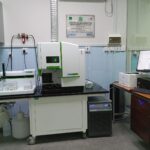ISLAMABAD, Nov 6 (APP): Ministry of Information Technology
and Telecommunications (MoIT) is in process to developing a Self-
Managing Energy System (SES) which would be capable of conserving
power usage in buildings.
The SES in buildings will be able to get goals, priorities
and constraints from consumers and using this information on energy
supply and demand at grid-level, the system will optimize energy
usage, official sources said here on Friday.
“If alternate sources of energy such as solar cells, wind
energy or Plug-in Hybrid Electric Vehicles (PHEV) are available then
SES will be able to incorporate it seamlessly into the system,” the
sources said.
The system, being developed at a cost of Rs. 12.95 million
under a project called – Self-Managing Energy Systems in Buildings,
is near completion.
National ICT Research and Development Fund and Lahore
University of Management Sciences (LUMS) are jointly working on the
project.
The sources said to control heavy electric devices such as air
conditioners, the SES will use a Home Area Network (HAN) to
communicate with devices and set their usage appropriately.
They said, however, this conservation does not mean load-
shedding as well as any other optimization method that in any way
interferes with normal day to day life of building occupants.
The key benefits that will be achieved using SES are using a
very simple user interface to allow the consumers to state goals,
priorities, and constraints on energy usage in a typical building to
automatically plan the energy usage through controlling devices and
making the consumers, aware of their energy usage patterns and show
them energy and cost savings by modifying energy usage patterns.
The other advantages are developing a localized low cost Home
Area Network implementation for controlling heavy duty electric
appliances for energy conservation which would be able to seamlessly
integrate alternate sources of energy such as solar energy in the
overall energy systems of buildings.
It merits mentioned here that with global warming and
impending scarcity of fossil fuel, cleaner sources and better
utilization of energy has been considered as a major goal for future
technology advancements and research.
To this end, many governments worldwide are working on a new
energy infrastructure commonly known as “The Smart Grid” which is
envisioned to better manage processes of energy generation,
transmission and distribution.
Buildings such as houses, offices and other structures are the
biggest consumers of energy and according to a study out of all
consumers of energy in most developed countries 37 % of energy is
consumed by buildings.
This is ahead of energy consumption in industrial sector
which consumes 28 % and transportation sector which consumes 32 %.
Due to smaller industrial and transport sectors, the percentage of
energy usage of buildings in developing countries is even more.
In fact, energy conservation has been cited as the ‘most
important fuel’ in energy generation. Energy conservation in
buildings is only possible if the energy usage is known in real
time.With this information one could plan the energy usage thereby
reducing energy consumption and saving bills. Moreover, if the heavy
duty devices could be controlled in an automated way then more
energy could be conserved by adjusting the usage of these devices
automatically. Another possibility is to use low-powered alternate energy
sources such as solar cells and wind turbines in buildings to reduce
the dependence on energy purchased from power companies.
Pakistan's National News Agency






